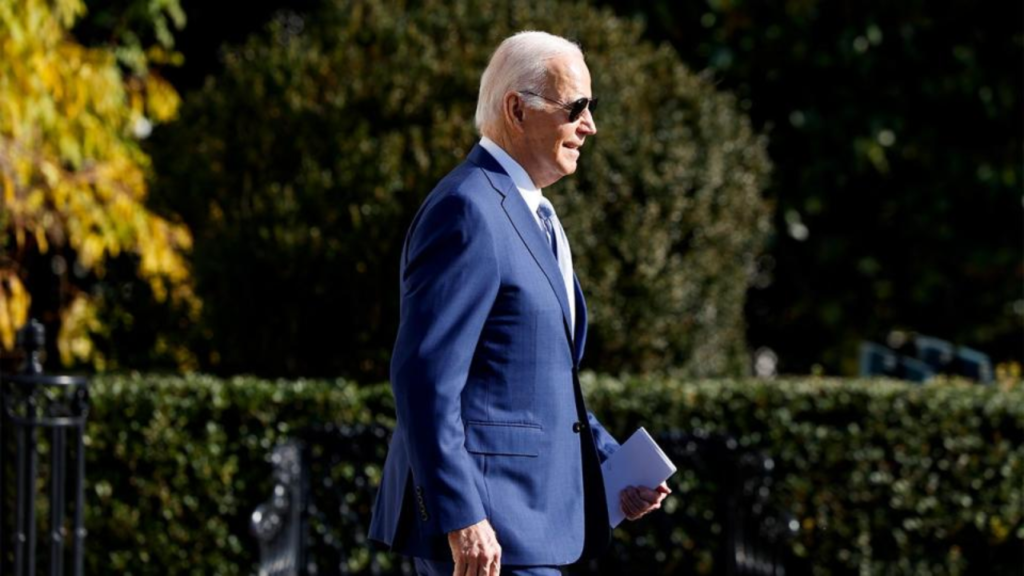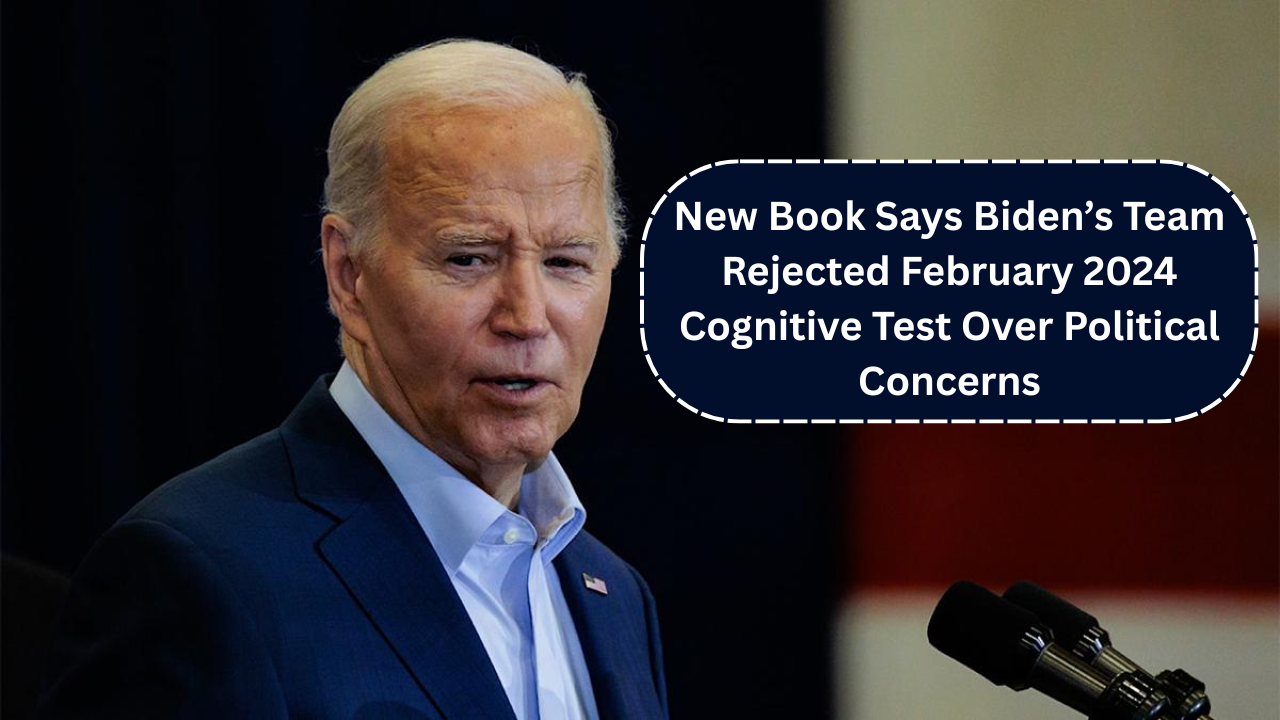In a revealing account of behind-the-scenes deliberations during the 2024 election cycle, a new book reports that President Joe Biden’s top advisors opted against having him take a cognitive test in early 2024, fearing political fallout despite expectations he would likely pass.
The claim comes from 2024: How Trump Retook the White House and the Democrats Lost America, a forthcoming political analysis by veteran journalist Alex Thompson. The book offers a detailed postmortem of the Democratic Party’s 2024 campaign strategy, including internal anxieties about President Biden’s age and cognitive abilities.
According to the book, advisors to the then-81-year-old president privately debated administering a cognitive test around the time of his annual physical in February 2024. While White House aides believed Biden would perform adequately, they ultimately decided it was more politically damaging to acknowledge concerns about his mental sharpness by requesting the exam.
Physical Exam, No Cognitive Test
President Biden underwent his routine physical on February 28, 2024, at Walter Reed National Military Medical Center. The official summary, released by the White House physician, Dr. Kevin O’Connor, described Biden as a “healthy, active, robust 81-year-old male who remains fit to successfully execute the duties of the presidency.” The summary did not include results of a cognitive test.
When asked why no cognitive screening was included, White House Press Secretary Karine Jean-Pierre said at the time, “The president’s doctors did not see a need to conduct one,” adding, “The president proves every day by handling the most demanding job in.
Mounting Public Concerns
Despite reassurances from the White House, President Biden’s age remained a persistent source of concern for voters and political commentators throughout the 2024 campaign. Questions intensified following a string of public missteps, including moments of confusion during speeches and a faltering debate performance against Republican nominee Donald Trump in June 2024.
These incidents fueled speculation about Biden’s mental acuity and raised the political cost of skipping a cognitive evaluation. The situation escalated when a special counsel’s report, issued in early 2024 in relation to Biden’s handling of classified documents, described the president as a “well-meaning, elderly man with a poor memory.” That language, widely reported in the press, dealt a blow to Biden’s efforts to project vigor and confidence.

Strategic Gamble
According to Thompson’s book, Biden’s inner circle was torn between demonstrating transparency and avoiding what they believed would be an admission that age had become a political liability. Some advisors reportedly argued that a clean bill of cognitive health could silence critics. But others believed even requesting the test would validate the GOP’s central narrative: that Biden was too old to serve another four years.
Ultimately, the decision not to proceed with the test was a calculated risk—one that may have contributed to broader unease among Democratic voters and independents.
Political Fallout
By July 2024, amid worsening poll numbers and internal party pressure, Biden announced that he would no longer seek re-election. In a video message to the nation, he endorsed Vice President Kamala Harris as his successor. Despite an energized Democratic National Convention, Harris lost the general election to Donald Trump in November 2024, ending a turbulent campaign cycle for the party.
The Democratic National Committee’s official statement on Biden’s withdrawal can be accessed at democrats.org.
Age and Cognitive Fitness in U.S. Politics
The episode has reignited a broader national conversation about age limits, mental fitness, and transparency for elected officials especially for those holding or seeking the presidency. Bipartisan calls for regular cognitive testing for top government officials have since resurfaced in Congress, though no legislation has yet passed.
Currently, the U.S. Constitution sets a minimum age for the presidency 35 years but no maximum age or mandatory health disclosure requirements. Proposals to add mental fitness tests have not gained significant traction, partly due to concerns over privacy, politicization, and implementation.
Conclusion
The decision by President Biden’s advisors to forgo a cognitive test in early 2024 was a strategic move aimed at protecting his re-election prospects. But as revealed in Thompson’s new book, that choice may have ultimately undermined public confidence at a pivotal moment in U.S. electoral politics. The long-term implications of that gamble are still unfolding, as both major parties reassess their strategies heading into the 2028 race.

Pankaj Kumar is a skilled content writer at OTE News, focusing on breaking news, technology, and socio-political developments. With a background in Mass Communication, he brings a balanced perspective to his articles, ensuring clarity and reliability. Pankaj has a knack for simplifying complex topics for readers.
In his free time, he enjoys photography, traveling, and experimenting with new cuisines. His curiosity and dedication to truthful reporting make him a valuable contributor to OTE News.




